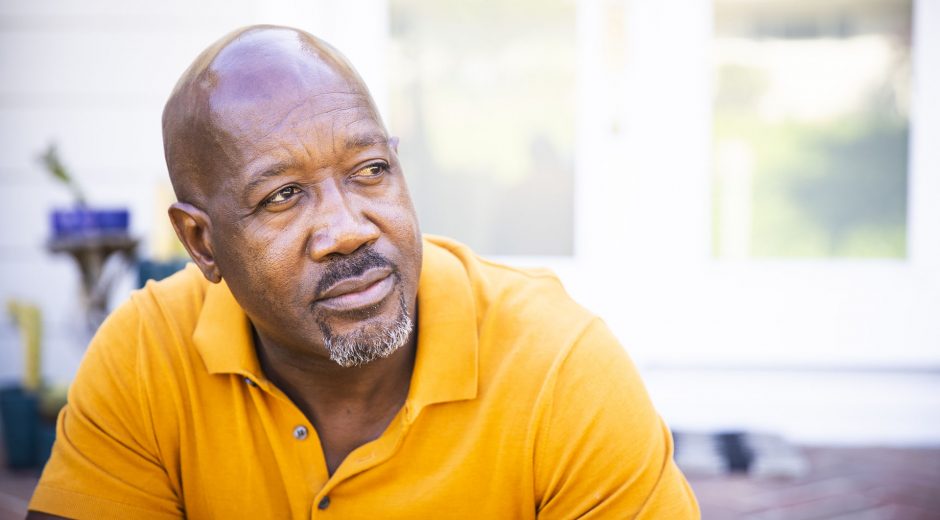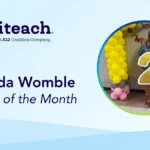Seek First to Understand, Then to Be Understood
Seek first to understand… this is the 5th habit from Stephen Covey’s wildly popular book The 7 Habits of Highly Effective People. If you haven’t read it, I encourage you to do so immediately.
Our world is filled with crisis all of the time. When you turn on the news it seems that there is always something new to fear, be angry or worry about. Fear is a natural response to real danger and should cause us to move and to act, but worry and anxiety are often negative responses to things that are out of our control or things that we aren unsure if they are even going to happen. Then there is anger. Anger is a common and good emotion. However, we are often taught that we should not get angry, but anger, when used correctly, should motivate us to act on the behalf of others for positive change.
I was at a gas station one night and a woman was being yelled at by another man. She was holding a baby. I was concerned so I walked over and asked if I could help. I was “seeking to understand”. The lady told me that she had asked the man nicely if he could turn his music down because her mother was asleep in the backseat of her SUV. I very politely asked the man “Why are you yelling at this woman with a baby?” I was just surprised and angry at the whole situation and I clearly told the man if he didn’t calm down that I would call the police. Eventually he drove away and the woman said, “Thank you for your help.”
When conflict arises, it can be easy to avoid the situation and think, “That’s not my problem.” But there are consequences and a ripple effect that happen when injustices happen. They compound. They build up over time and eventually the problem that you thought wasn’t going to impact you is on your front doorstep.
Nobel Prize Winner Elie Wiesel wrote this in his acceptance speech for winner the Nobel Peace Prize in 1986:
“We must take sides. Neutrality helps the oppressor, never the victim. Silence encourages the tormentor, never the tormented. Sometimes we must interfere. When human lives are endangered, when human dignity is in jeopardy, national borders and sensitivities become irrelevant. Wherever men and women are persecuted because of their race, religion, or political views, that place must – at that moment – become the center of the universe.”
Lately our world has been filled with a lot of tragedy that has caused us to stop and pause and consider what we can do to help impact the world around us.
At iteach we want to be positive agents of change. We are not here to dwell on the problems, but to educate and empower individuals on how to create solutions for the future.
Pausing to Understand
My friend Lynne is a wonder when it comes to disciplining her children compassionately. She told me the story once of how her son spoke rudely to his teacher. She told him, “Jackson, we don’t talk to teachers that way, you go an apologize.” He shook his head defiantly and said “No.” Lynne was surprised by her child’s behavior because this was out of character for him. Something must have happened that made him upset, but, that still did not make his behavior correct. She went over to the teacher and asked her some questions about why Jackson might be upset and found out that there had been some conflict earlier in the day with another classmate. Lynne took the time to hear both sides of the story, she validated and empathized her sons feelings and she even told the teacher, “Thank you for allowing me the time to teach my son and being part of this solution even if it may have been uncomfortable.”
I was amazed at the patience Lynne had with her son. In my experience, I often don’t take the time to seek to understand. Instead I want immediate action and results. No immediate apology? Well, that means you need to be punished for your bad behavior. That might still need to happen, I’m all about consequences for bad actions, but, using punishment to control and get a response from your child is not the same as helping them to understand their behavior and therefore nipping the problem in the bud.
So why don’t we take time to listen and understand? Often because it does take more effort on our part. It does take more time. It can be hard. Awkward. Uncomfortable…
Handling conflict in a positive way is like working out, the more you do it, the more you realize how beneficial it is, even when it is hard work.
Conflicts Can Be Opportunities for Positive Growth
Robin Funsten has a knack for conflict—more specifically, in its successful resolution. She challenges us to look at the inevitable conflicts we face as opportunities for providing positive and lasting change.
Robin has some great points in her Ted Talk about the roots of conflict and how we can use conflict to improve our lives and not disrupt it. Healthy conflict is part of life, it is something that we see in all great stories. We see a conflict, and then there is a resolution, hopefully, by the end of the story.
According to Robin, these are the roots of conflict:
- Limited Resources
- Unmet Needs
- Different Values
My Conflict? Loud Neighbors.
When I look at Robin’s roots of conflict I can’t help but apply these three topics to my own personal conflict with my neighbors. My neighbors are loud. They listen to music too loud sometimes and my “unmet need” is for silence. I value quiet, they value loud music. My limited resources have kept me from being able to move to my own private island where I can always have peace and quiet. So Robin is right and of course a conflict was born with my neighbors. So what did I do? I introduced myself and got to know them. I didn’t even bring up their loud music and the craziest thing happened, getting to know Trish and Victor as people and not just “Noisy Neighbors”, I found that their noise didn’t bother me anymore.
So what changed? This was a strange epiphany for me and one I hadn’t fully understood until I had this experience. I have often been eating at a restaurant and parents will let their kids listen to their smart phones at full volume totally oblivious to the noise. I am sitting at my table trying to enjoy a quiet meal, so I’m fuming and I can’t understand why the parent doesn’t turn down the volume on the device or make their child wear earphones. But, I believe two things come into play here: 1) The parent loves their child and knows them intimately and so small things like a little noise are easily overlooked 2) They have become used to the noise and are now deaf and immune to it.
Empathy and Understanding
So when I did some research on what took place in how I viewed my neighbors, it seems that empathy allowed me to overlook their behavior.
“In a fractured world, can we hack our own sense of empathy and get others to become more empathic? Professor, Department of Psychology, Stanford University Jamil Zaki is an assistant professor of psychology at Stanford University. His research examines social cognition and behavior, especially how people understand and respond to each other’s emotions.”
Listen, Understand, Connect – these are three parts of empathy and when we don’t agree with people, when we don’t have empathy, we can seek not to connect with them, but instead, to turn them into villains and as Jamil Zaki says in his Ted Talk that we “savor their pain.”
Empathy Fuels Connection
“Empathy fuels connection. Sympathy drives disconnection.” – Brene Brown
Check out this very short video about understanding empathy.
Crucial Conversations
We recently posted an article about the book Crucial Conversations and how valuable it is for every teacher to read. But it is really a book that should be required reading for everyone on the planet that wants to build healthy relationships.
One of my favorite things about the book is that it teaches you the value of good communication and how when you have a conflict, the goal is not to win the argument or the fight, but instead to create a resolution where everyone wins. This means that sometimes you both have to compromise in order to get small wins, but when you seek to have winners on both sides, you don’t have someone losing.
Become a Teacher. Change Lives.
If you are passionate about impacting the world around you there are few places where you can influence the future as much as a teacher. Teachers have the ability to build students up and set them on a positive course that can have a ripple effect for future generations.
If you are interested in becoming a teacher, check out our online teacher certification process and you could be teaching in a matter of weeks.





